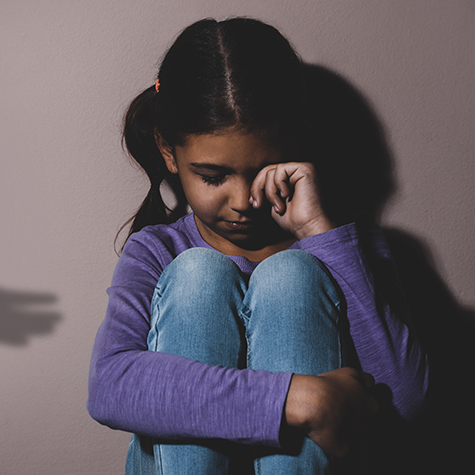
Adverse Childhood Experiences: Understanding the Link to Long-Term Health Challenges


Adverse Childhood Experiences (ACEs) are traumatic events that occur during childhood and have lasting impacts on an individual’s physical and mental health throughout their life. These experiences can range from physical, emotional or sexual abuse to household dysfunction and neglect. Studies have shown that ACEs are linked to a higher likelihood of various health challenges, impacting both physical and psychological well-being. In this article, we’ll explore the different types of ACEs, the long-term health effects associated with these experiences, and strategies for preventing and addressing ACEs in children and adults.
Types of Adverse Childhood Experiences
ACEs can be broadly categorized into three main groups: abuse, neglect and household dysfunction. Here are some examples of each type:
1. Abuse:
- Physical abuse: Deliberate use of physical force causing injury, pain or discomfort.
- Emotional abuse: Verbal or non-verbal acts that harm a child’s self-worth or emotional well-being.
- Sexual abuse: Any sexual act, attempt or exploitation of a child.
2. Neglect:
- Physical neglect: Failure to provide basic physical needs, such as food, shelter and medical care.
- Emotional neglect: Lack of emotional support, love or attention.
3. Household dysfunction:
- Parental separation or divorce
- Substance abuse in the household
- Mental illness in the household
- Domestic violence
- Incarcerated household member
Long-Term Health Effects of ACEs
Children who experience ACEs may develop coping mechanisms to adapt to their environment. However, these coping mechanisms may not be helpful in the long term and can contribute to various physical and mental health problems. Some of the potential long-term health effects include:
1. Physical health problems:
- Obesity
- Heart disease
- Diabetes
- Chronic respiratory diseases
- Cancer
2. Mental health problems:
- Depression
- Anxiety
- Post-traumatic stress disorder (PTSD)
- Substance abuse
- Suicide attempts
3. Behavioral issues:
- Aggression
- Delinquency
- Poor academic performance
- Difficulty forming and maintaining relationships
The Impact of ACEs on Brain Development
ACEs can have a significant impact on a child’s brain development, particularly during the critical period of neuroplasticity (the ability of the brain to change and adapt). When children experience trauma, their brains release stress hormones, such as cortisol, which can disrupt neural connections and hinder the development of essential brain functions.
The effects of ACEs on brain development may contribute to cognitive, emotional and behavioral issues later in life. For example, children who experience trauma may have difficulty regulating their emotions, which can lead to impulsivity, aggression and poor decision-making. These issues can further affect a person’s ability to form and maintain healthy relationships and succeed academically or professionally.
Strategies for Prevention and Addressing ACEs
Recognizing and addressing ACEs early in life can significantly improve an individual’s long-term health outcomes. Here are some strategies for prevention and intervention:
- Raise awareness: Educate parents, educators, healthcare providers and policymakers about the lasting effects of ACEs on children’s health and well-being. Encourage open conversations and the sharing of resources.
- Supportive environments: Create safe, nurturing environments in schools, homes and communities that foster resilience, trust and positive relationships.
- Early intervention programs: Implement programs to identify and support children who have experienced ACEs, providing resources and support for both the child and their family.
- Mental health services: Ensure access to mental health services for children and families affected by ACEs. Offer trauma-informed care, counseling and therapeutic interventions that address the unique needs of individuals who have experienced childhood trauma.
- Parenting education and support: Offer parenting classes, workshops and support groups that teach positive parenting techniques and stress management skills. Provide resources for parents to understand the effects of their own ACEs on their parenting behaviors and how to break the cycle of trauma.
- Training for professionals: Equip educators, healthcare providers and social workers with the skills and knowledge to recognize the signs of ACEs and respond appropriately. Provide training in trauma-informed care and effective communication strategies to build trust and rapport with children and families.
- Community collaboration: Foster partnerships between schools, healthcare organizations, social services agencies and community organizations to develop comprehensive, coordinated approaches to prevent and address ACEs. Pool resources and expertise to offer targeted interventions and support for children and families at risk.
- Public policies: Advocate for policies that support children and families, such as access to affordable healthcare, safe and stable housing and high-quality education. Implement and enforce laws that protect children from abuse and neglect and provide resources for prevention and intervention efforts.
- Resilience-building: Encourage the development of resilience in children who have experienced ACEs. Promote positive coping mechanisms, social connections and self-regulation skills that can help children overcome adversity and lead healthier lives.
Conclusion
Adverse Childhood Experiences (ACEs) can have significant impact on an individual’s physical and mental health. By understanding the types of ACEs and their effect on health outcomes, we can take proactive steps to prevent and address these traumas in children and adults.
Implementing evidence-based strategies, such as raising awareness, creating supportive environments and providing access to mental health services, can help break the cycle of trauma and improve the well-being of individuals with ACEs. Together, we can foster healthier, more resilient communities and work toward a brighter future for all.
Continue the Conversation on Social Media
Care for Kids wants to hear from you.
- How can various community stakeholders, including schools, healthcare organizations and local government agencies, collaborate to create a coordinated and comprehensive approach to tackle ACEs and support affected children and families?
- How can we help parents who have experienced ACEs themselves to develop healthier parenting behaviors and prevent the transmission of trauma to their children? What support systems and resources are most effective in promoting positive parenting skills and emotional well-being for parents with a history of ACEs?
- What are some effective ways to foster resilience and teach positive coping mechanisms for children who have experienced ACEs? How can we promote emotional regulation, social connections and self-care practices that help children and adults overcome the long-term effects of childhood trauma?
